Cardamom (Elettaria cardamomum) is a spice belonging to the Zingiberaceae family of plants that is grown and cultivated in Nepal, Sri Lanka, Indonesia, Tanzania, Guatemala and India.
According to The Spruce Eats, the color and size of cardamom pods may differ depending on the species. Its two main types are green and black. The green variety, also known as “true” cardamom, is most commonly found in supermarket aisles and used in Nordic and Middle Eastern dishes.
True cardamom has a sweet and pungent flavor, with hints of lemon and mint. You can add whole pods of it into dishes. These pods contain brown aromatic seeds that can be ground to release a potent flavor. Be sure to keep in mind that ground cardamom seeds lose their flavor and aroma quickly, so it’s best to grind them just before cooking.
Cardamom can be used in both savory and sweet recipes. It’s commonly found in garam masala mixtures and added into various curry blends. You can also use it to make beverages like cardamom tea or Arabic coffee. In some areas of the Western world, cardamom is an essential sausage ingredient, and adds a unique flavor to Scandinavian pastries.
Health Benefits of Cardamom
Different parts of cardamom were traditionally used for digestive-related disorders like diarrhea, dyspepsia and constipation. It’s also used to help relieve depression, and is believed to have aphrodisiac properties.
A study in the World Journal of Gastrointestinal Oncology found that cardamom “exhibited promising anti-H. pylori activities.” This bacterium is involved in various digestive problems, including chronic active gastritis, peptic ulcer and gastric cancer.
Cardamom is a good source of important phytochemicals, such as limonene, pinene, myrcene, alpha phellandrene, alpha terpineol, alpha terpineol acetate, cineol, heptane and phytol, to name a few. These compounds contribute to the medicinal properties of cardamom, which include:
- Antioxidant
- Anticancer
- Antibacterial
- Antidiabetic
- Antifungal
- Anti-inflammatory
- Anti-proliferative
- Antiviral
Nutritionally, cardamom is rich in dietary fiber, iron and manganese. It’s also a good source of vitamin C, magnesium, calcium, potassium and zinc. To learn more about its nutritional profile, check out the nutrition facts table below:
| Cardamom Nutrition Facts
Serving Size: 1 tablespoon, 0.2 ounce (5.8 grams), ground |
||
| Amt. Per Serving |
||
| Calories | 18 | |
| Total Fat | 0.39 g | |
| Saturated Fat | 0.39 g | |
| Trans Fat | ||
| Cholesterol | 0 mg | |
| Sodium | 1 mg | |
| Total Carbohydrates | 3.97 g | |
| Dietary Fiber | 1.6 g | |
| Sugar | ||
| Protein | 0.62 g | |
| Manganese1.62 mg | Vitamin C | 1.2 mg |
| Calcium22mg | Iron | 0.81 mg |
Studies Done on Cardamom
Cardamom powder was tested on 20 individuals newly diagnosed with primary Stage 1 high blood pressure to evaluate its effect on cardiovascular risk factors. Each subject was given 3 grams of cardamom powder for 12 weeks.
Blood pressure was initially taken at four-week intervals for three months. Results showed that cardamom powder helped lower systolic, diastolic and mean blood pressure and increased fibrinolytic (blood clot-inhibiting) activity. Total antioxidant status also increased by 90% at the end of three months, without any side effects.
Noted as having the ability to improve digestion, stimulate metabolism and inhibit tumor growth, cardamom was examined for other properties in another study. Researchers found it helped increase the activity of glutathione, glutathione reductase, superoxide dismutase and catalase levels, leading scientists to suggest its potential as a “pivotal chemopreventive agent” to reduce the risk for papillomagenesis on the skin, among other positive uses.
Studies were done on numerous spices to evaluate their phenolic and antioxidant properties. Cardamom was found to contain medium flavonoid levels and help enhance antioxidant enzyme activities. It may also help inhibit colon cancer growth and proliferation. Plus, its eugenol content may help reduce the risk for tobacco-induced mutagenicity.
Cardamom Fun Facts
The use of cardamom for culinary and medicinal purposes dates back to 3000 B.C. Its scientific name came from the colloquial Tamil term “Elettari,” which refers to cardamom seeds. Cardamom is commonly known as the queen of spices in India, while gulf countries such as Saudi Arabia, United Arab Emirates and Kuwait refer to this spice as “hel.”
Summary
Cardamom is rich in phytochemicals with various biological activities, including anti-inflammatory, antioxidant, antibacterial, antifungal and antidiabetic properties, to name a few. It’s also a good source of several vitamins and minerals, including manganese, vitamin C, magnesium and zinc.
As a spice, cardamom is versatile, as it can be used in sweet or savory recipes and even in beverages. You can buy it already ground, but the entire pod, opened to release the tiny seeds inside for fresh grinding, offers the most intense, spicy-sweet and completely unique flavor.

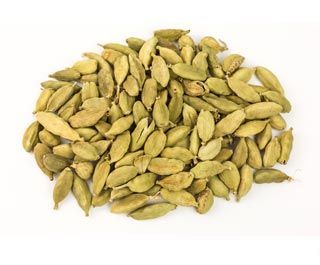
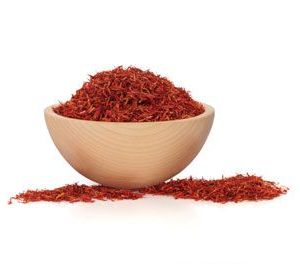
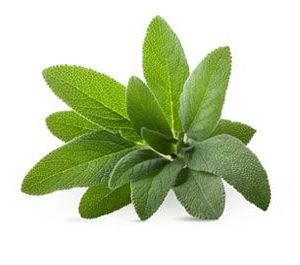
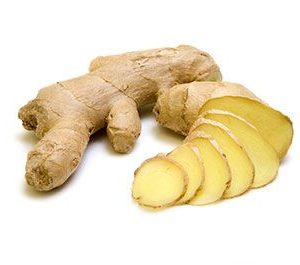
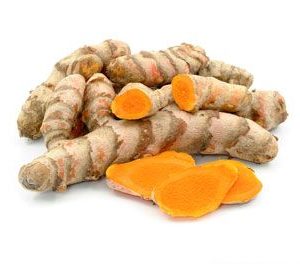
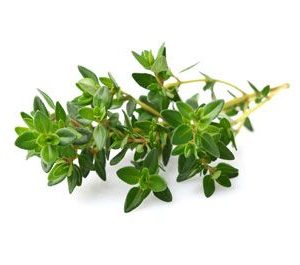
Reviews
There are no reviews yet.